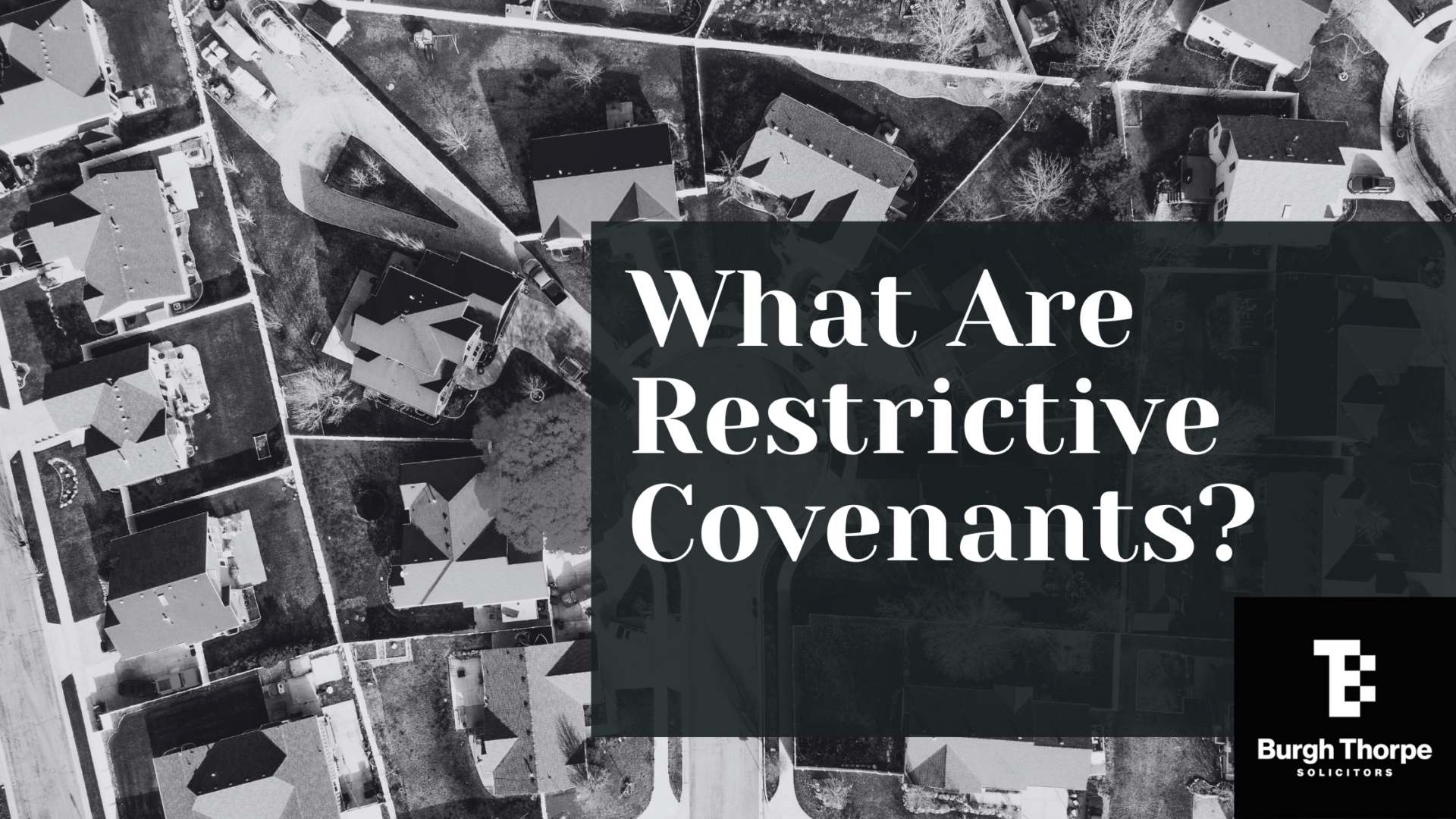What Are Restrictive Covenants?
Conveyancing Posted 7 November 2024There can sometimes be disputes between neighbours. These can arise when one neighbour chooses to enforce a restrictive covenant against another. It will depend on the specific restrictions and legal framework in the relevant jurisdiction. However, a restrictive covenant is a legally binding obligation. They can be enforced by parties with a legitimate interest in the enforcement. This can include neighbouring property owners or homeowner’s associations for example.
In this blog post we look at what restrictive covenants are and what you need to be aware of.
What are restrictive covenants?
A restrictive covenant is a legal agreement. They impose a certain restriction on the use of land or property. This will often be included in property deeds. Its aim is to ensure that the character, value and overall harmony of a specific area is maintained.
They are legally binding agreements that can be enforced, provided they meet certain requirements. There are several factors to determine the enforceability of a convenance. For example, the covenant needs to be valid. This means that it must have been properly drafted, executed and registered. It must have also adhered to any applicable laws and regulations at the time of its creation.
When the covenant was put in place, it must have been intended to benefit a specific individual or group. They will often be referred to as the beneficiary. The benefit from the covenant should be clear and identifiable.
It is important that the covenant relates directly to land or property in question. It can not merely come down to personal preferences or circumstances for example. The covenant needs to have a genuine connection to the use, enjoyment or value of the land.
The covenant also needs to reasonable in its scope and restrictions to be enforceable. Factors such as the purpose of the covenant, the nature of the restriction and the impact on affected parties will be considered by the court in case of a covenant. If the court believes that these criteria are met, a neighbour can enforce a restrictive covenant against another party. However, they will need to have the legal standing to do so.
Now you know what restrictive covenants are, do you need help managing restrictive covenants for your property or a neighbour? Call our conveyancing specialists now. They will happily talk through your covenant concerns and help you through the muddy waters.
